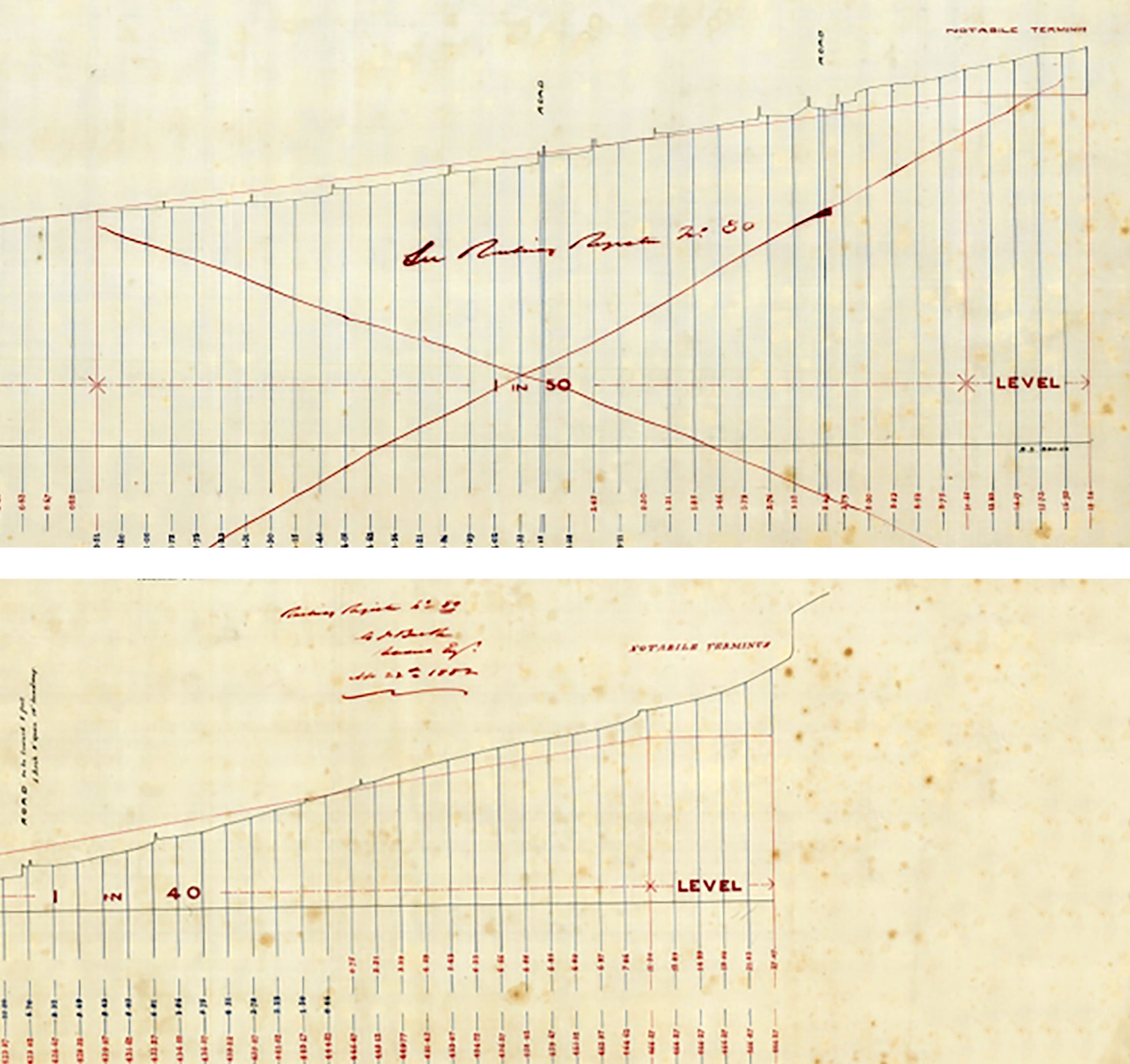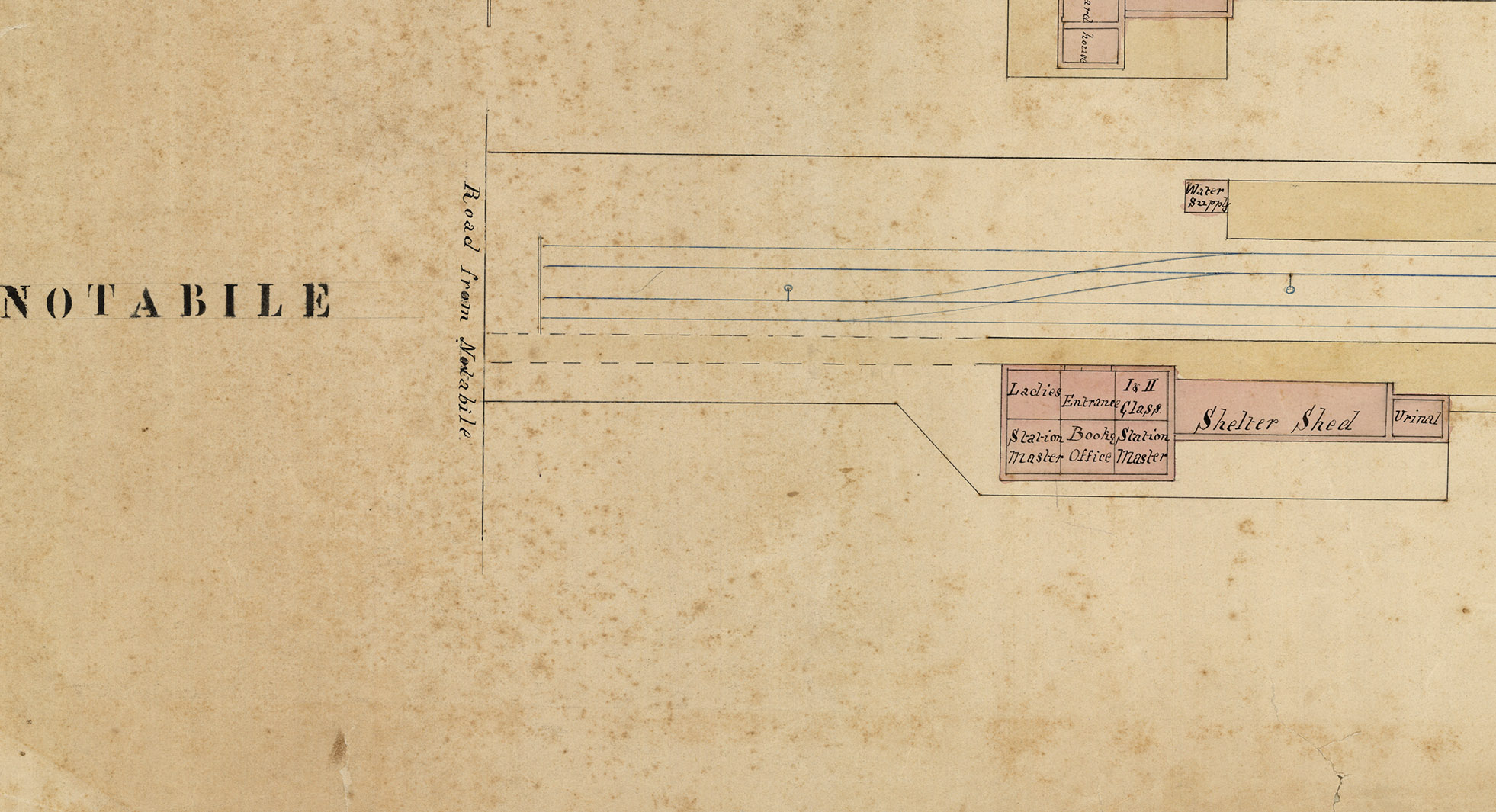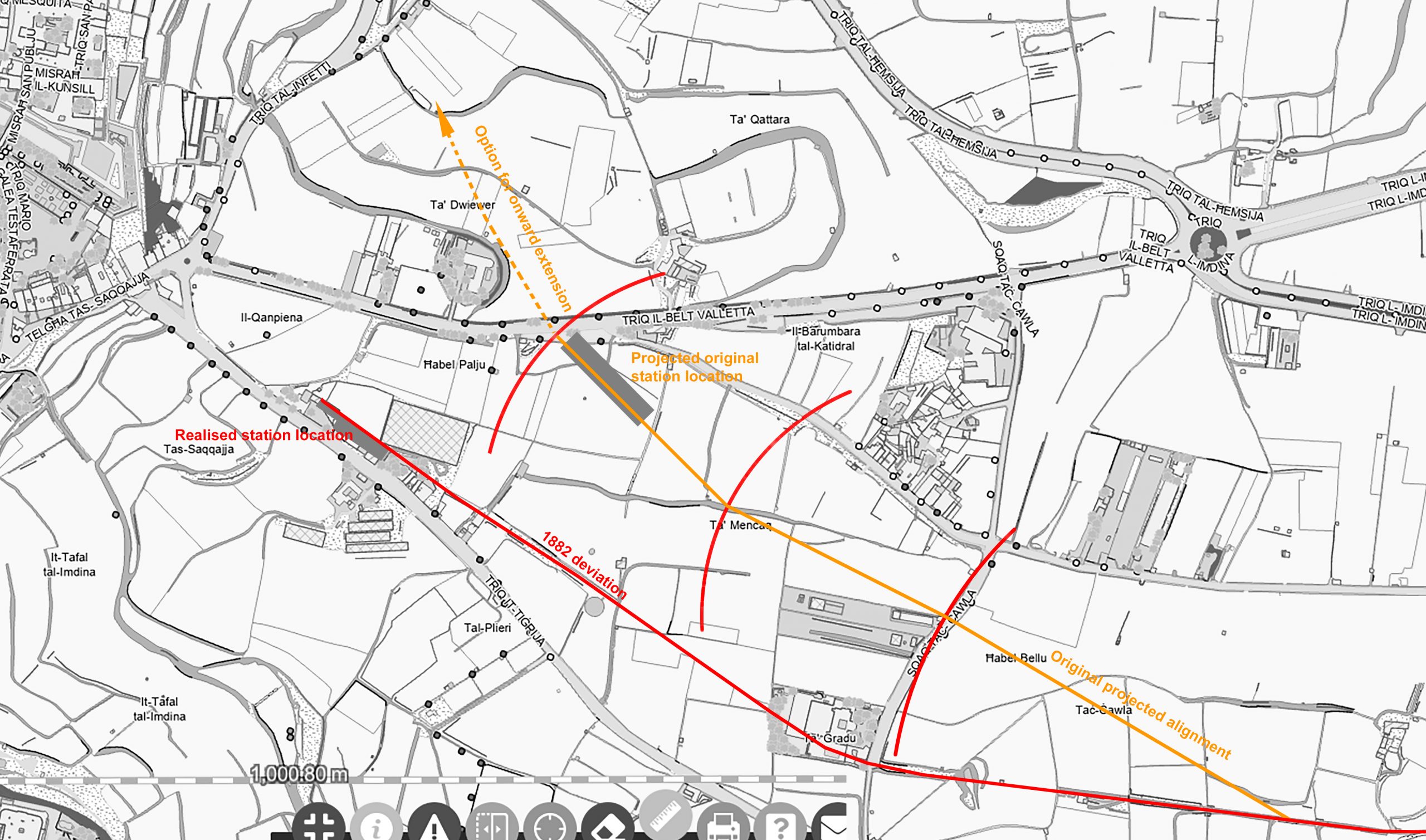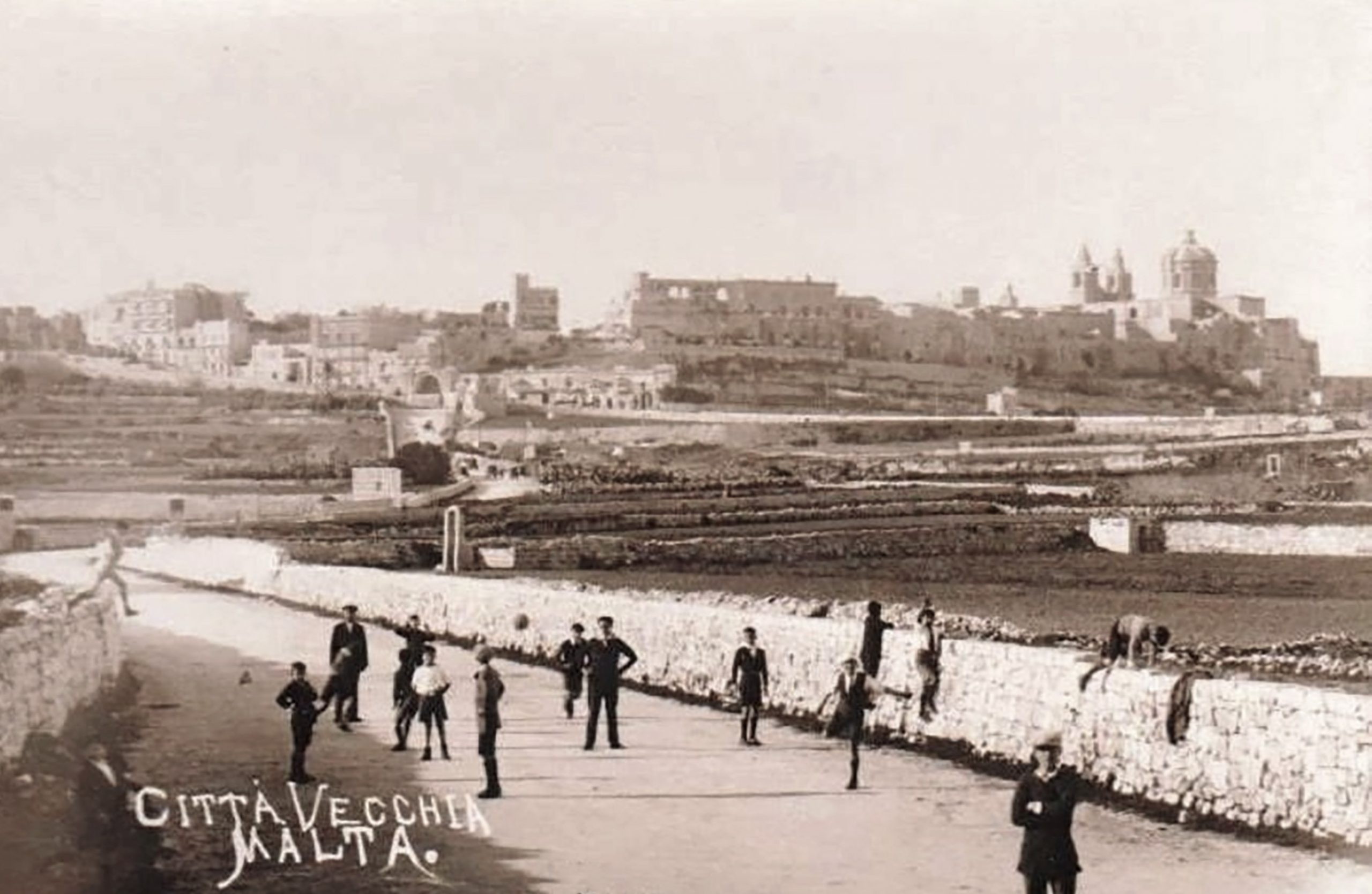In 1883 the Malta Railway company directors reported to their investors that the Government Supervision Board had required them to move their originally planned location for Notable station to one closer to the town. The change had been instructed in April the previous year, probably through agreement with the company director William Roebuck who was in the country at the time. This was just as work on the final mile was beginning.

The drawings show a red cross through the original gradient section drawing and it’s replacement with a new profile. The original proposed a slightly shorter line on a shallower gradient, an alignment that would take it across two roads before the site of the new terminus. The Contract drawings, signed at the end of 1880, show Notabile station was to terminate against a third road, marked as “Road to Notabile”.

But where was the original proposed site? Taking the distances between road crossings shown on the sections and plotting them on a modern map implies that Saqqijja road was the intended location. From here, the gradients would be more propitious for any onward extension, rather than tunnelling that would be required in the adopted route.

The revised site would require the steepest gradients on the line – 1:40 – a punishing ascent that the Directors admitted had not been an earlier consideration when the locomotives had been commissioned. This miscalculation would later result in over-taxing of the little engines, accelerating their decline which, coupled with negligent maintenance, led to their wearing out quickly.


No responses yet